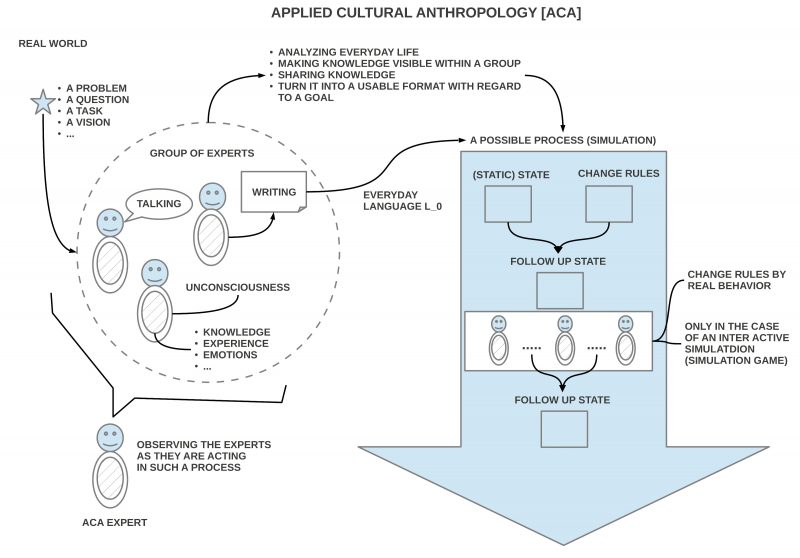ISSN 2567-6458, 26.August 2020
Email: info@uffmm.org
Author: Gerd Doeben-Henisch
Email: gerd@doeben-henisch.de
CONTEXT
As described in the uffmm eJournal the wider context of this software project is a generative theory of cultural anthropology [GCA] which is an extension of the engineering theory called Distributed Actor-Actor Interaction [DAAI]. In the section Case Studies of the uffmm eJournal there is also a section about Python co-learning – mainly
dealing with python programming – and a section about a web-server with
Dragon. This document will be part of the Case Studies section.

